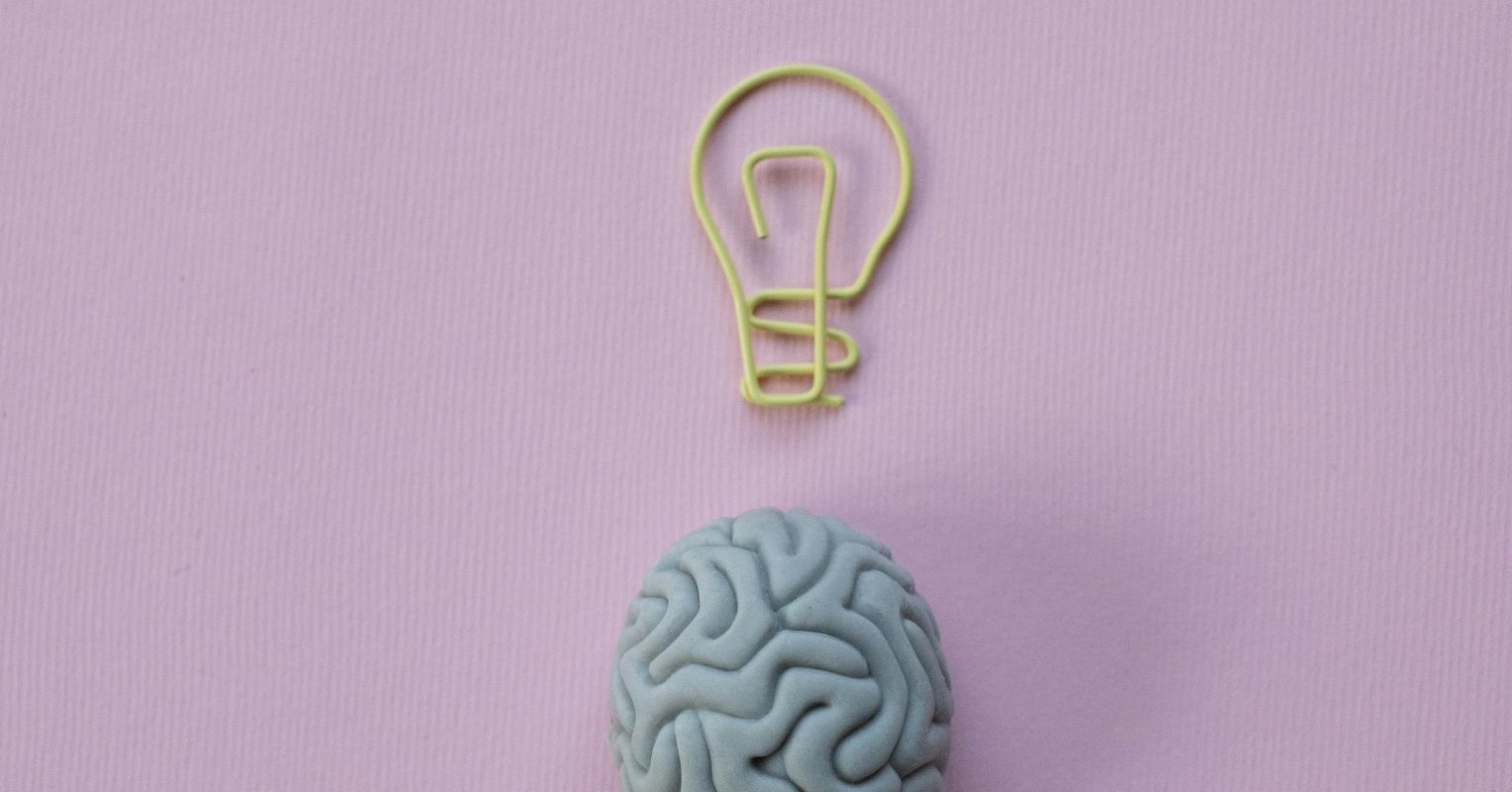#therapy
#therapy
[ follow ]
#mental-health #relationships #boundaries #infidelity #grief #marriage #communication #trauma #family-dynamics
fromwww.mercurynews.com
1 week agoAsking Eric: My mother got into trouble and sniped at me for helping
I have spent a year helping my elderly parents sell their house and pay off tremendous debt, mostly due to my mother's spending and hoarding. My father is unable to handle anything due to health issues. I have had help from my family so I'm not alone in this. I am still very involved with helping them with finances and doctors. They are in a small rental now with no maintenance or yard duties.
Mental health
Relationships
fromBusiness Insider
1 week ago8 relationship ground rules celebrity couples swear by
Hollywood couples strengthen relationships by protecting time together, respecting independence, staying playful, prioritizing sleep arrangements, attending therapy, and supporting each other during hard times.
fromSlate Magazine
1 week agoI Was Invited to a Threesome on Vacation. When I Got to Their Hotel Room, I Was Humiliated.
Altering your appearance (and perhaps life) because of a bad experience is giving that size queen way too much power. The first thing I want you to consider instead is therapy. Five inches is typically quoted as average in studies, though a recent meta-study of many studies of penis length found that the average has bumped up to six inches. That means even if you aren't quite average, you're within spitting distance of it.
Relationships
fromPortland Mercury
2 weeks agoIntrusive thoughts can suck my balls
I can't work up the courage to talk to any of my friends when I'm having mental health issues. It hits the worst for me usually at 4-5 am, and I never want to wake anyone up when I'm having panic attacks that late due to my intrusive thoughts, even though being around people helps. I'm in a safe place and have a therapist/medication, but it feels like I'm not getting better every time I find myself back in this situation.
Mental health
Relationships
fromSilicon Canals
3 weeks agoTherapists say this common phrase damages relationships more than arguments - Silicon Canals
Absolute phrases like "You always" and "You never" erode trust by turning specific complaints into character attacks and invalidating past efforts, damaging relationships.
fromThe New Yorker
1 month agoHow to Recover from Caring Too Much
It is the afternoon of the fawn. Everywhere you turn, in workplaces and households alike, yearlings with saucer eyes, brown felt noses, and stilt-like legs are wondering if you're mad at them. The fawn response, as it's known in some precincts of social media, bundles various forms of ingratiating, people-pleasing behavior. It can manifest in threatening situations, where expressing authentic emotion could elicit a powerful person's wrath or cruelty,
Psychology
fromwww.mercurynews.com
2 months agoDear Abby: I'm receiving divine signs about my ex-fiancee
I proposed to Dawn, and she accepted. Over the next few months, she became agitated and threw her engagement ring back at me. I kept it until we figured things out. Two years later, Dawn ghosted me. I was hurt, so I gave her space. We reconciled five months later. Three years later, I finally trusted her enough to ask her about getting married.
Relationships
Mental health
fromSlate Magazine
2 months agoHelp! My Wife Has a Very Upsetting Reaction to Christmas Gifts. This Year, I'm Making a New Plan.
Depression often removes interest in gifts and activities; practical support finding and attending therapy and lowered expectations are more helpful than material presents.
fromwww.mercurynews.com
2 months agoAsking Eric: This workplace incident is hanging over me, a year later
I worked for a family-owned realty company for nearly 30 years. I am not a family member. We started out as just four of us while the company expanded into one of the largest real estate firms in our community. I was an intricate piece of it, but as it grew, I felt more and more left in the dark by their decisions and considerations. It felt hostile to me.
Mental health
Cooking
fromBoston Herald
2 months agoThe many ways that baking is winter therapy. With a delicious ending
Baking offers emotional comfort, creative expression, scientific engagement, and communal connection by transforming simple ingredients through structured techniques into comforting, shareable food.
fromPsychology Today
2 months agoBreaking Free From Shame
When we can't fully express ourselves to our friends and family, some of us decide to find a therapist. Therapists can hold up the mirror to show us the maladaptive patterns we're repeating over and over. The brave therapists risk our anger and resentment as they professionally and respectfully challenge us to consider the mistakes we're making. They help us overcome our shame and teach us that our depression, our anxiety, and our hate all find no purchase on the steep slope of emotional support,
Mental health
fromBuzzFeed
2 months agoI Had A Secret Teenage Romance. It Wasn't Until Years Later That I Realized What Really Happened.
My client could have easily spent another hourlong session obsessing over "hot yoga guy" - which she'd done many times before - but I wasn't going to let her. My job as a therapist was to help bring deeper awareness to her emotional experience and to identify what was simmering just beneath the surface, driving compulsive thoughts and behaviors. In this case - limerence.
Mental health
fromwww.mediaite.com
2 months agoPsychotherapist Tells Fox News Trump Derangement Syndrome' is a Mental Health Epidemic'
I am deeply, deeply concerned about what I've been seeingfor almost 10 years now. We see great division in families and friendships broken up over how strongly they feel about Trump, Alpert said. What I'm seeing is symptoms that in many ways mirror other disorders. People are anxious, they're angry, they can't sleep. One person even said she couldn't possibly enjoy a family vacation as long as Trump is out there.
US politics
fromPsychology Today
2 months agoWhy You Should Watch "Pieces of April" This Thanksgiving
For many people, Thanksgiving week kicks off the most psychologically intense stretch of the year. Those in therapy or actively working to improve family relationships often feel the pressure most acutely. As a therapist, this is a week filled with conversations about anxiety, dread, and longing. Many clients share some version of the basic sentiment: "I've built an independent, responsible life, but the moment I walk through the Thanksgiving door, I'm suddenly a miserable teenager all over again." This is the week when many clients prepare to approach the holiday differently, hoping that by changing themselves, they can influence the family system.
Film
fromSlate Magazine
2 months agoI Have to Break Up With My Therapist for a Maddening Reason
I grew up in a household where therapy was not an option, but after seeing a great therapist for anxiety during the pandemic years, I was sold on its benefits. I moved states and couldn't see my therapist anymore, and tried a few different ones in my new city. After many duds, I found a fantastic one, and I've been seeing her for two years. I love working with her, and we've worked through a lot of things and I've seen a lot of growth in myself with her help. Now I have to say goodbye, and I really don't want to.
Mental health
Film
fromBuzzFeed
3 months ago9 Times Kristen Bell And Dax Shepard Said Eyebrow-Raising Things About Marriage, Parenting, And More
Dax Shepard and Kristen Bell frequently make candid, controversial public remarks about their marriage, parenting, therapy, and humor that generate strong public reactions.
fromwww.theguardian.com
4 months agoYou can't just press undo' on your life. To move forward, you must first feel your grief and rage
When we were supposed to be on holiday but weren't, I kept feeling a tug towards finding the positive: I can book a replacement trip; At least we have travel insurance; This'll give me something to write about. But I never felt better, just a bit depressed. And then I would bump up against the reality that this holiday really was gone: my husband's surgery required frequent agonising dressing changes, and there is a limited time window for an enjoyable break on the Belgian coast.
Mental health
Mental health
fromwww.theguardian.com
4 months agoRacist voices are becoming louder and moving into the mainstream. How can I help my client feel safe? | Ahona Guha
Far-right emboldening has increased mainstream racism, causing resurgent racial trauma among migrants and people of colour and complicating therapeutic care without cultural understanding.
fromThe New Yorker
4 months agoPutting ChatGPT on the Couch
I know I mentioned my profession to him, but I am pretty sure he was the one who engaged me that way. I also know how diabolically good a chatbot can be at saying what is on the tip of your tongue, and doing it before you can, and better than you might have. That makes me feel less troubled by my uncertainty.
Psychology
fromPsychology Today
5 months agoAvoiding the 'Existential Vacuum'
While the catchphrases have evolved - "How does that make you feel?" has been replaced more recently by "Notice, don't evaluate" - the core idea remains the same. And this approach isn't a modern invention. Even as far back as the Stoics, we've recognized that a great deal of anxiety and suffering come from how we evaluate and label things.
Mental health
Television
fromwww.theguardian.com
5 months agoI've spent a lot of my adult life trying to prove myself': Mawaan Rizwan on his long journey from shopping centre performer to Bafta-winning actor
Mawaan Rizwan's BAFTA success amplified public validation, blending surreal comedy with candid vulnerability while altering personal and professional dynamics.
[ Load more ]




















